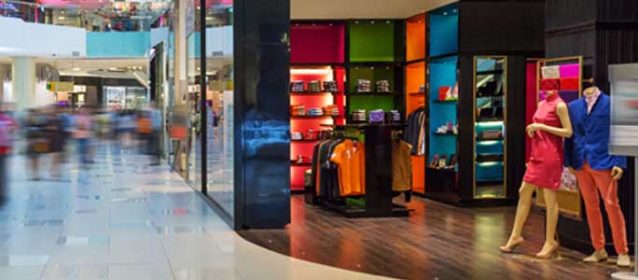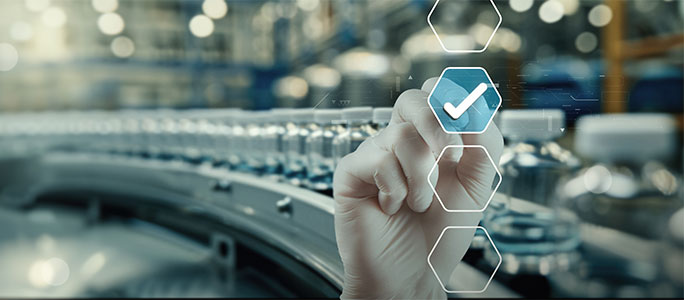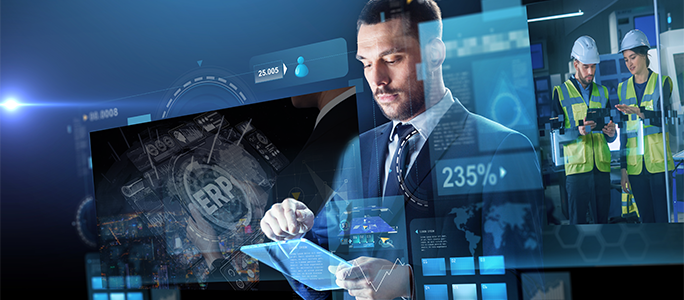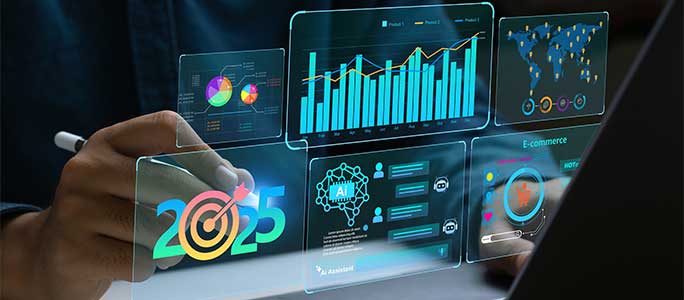
We are living in the age of technology. Every facet of life, including the business environment, has felt the impact of changing technological trends, and the fast-paced retail industry is no exception.
In fact, it is one sector which has always been at the forefront of technological innovations.
The first electronic cash register in the 1960s, first UPC barcode scan on the pack of a Wrigley’s chewing gum in 1974, and the first-ever online order in 1994 bear testimony to the fact that the retail sector has witnessed revolutionary changes from time to time- thanks to the changing technological trends and innovation.
Enterprise Resource Planning (ERP) systems to have evolved remarkably over the years, as the ERP vendors have strived to create more powerful, less complicated and more affordable options for the retailers.
With new features, concepts, functionality, technology, and new ERP trends emerging on to the scene, such futuristic ERP systems will continue to make diverse businesses, including retail, simpler in the future as well.
The use of technological innovations like drone delivery, robotics, and other Artificial Intelligence (AI) applications is likely to impact and benefit both the retailers and the consumers and redefine the future of the retail industry on the whole.
No wonder the retailers are increasingly turning to IT tools such as retail management ERP software, which incorporate the latest technological innovations to enhance the customers’ in-store as well as online experience.
And while the future seems far away and can’t really be accurately predicted, it is a good time to look back at the year 2018 which is leaving us in a few days’ time, and get a picture of what will happen in the next few years.
This blog lists down the top eight ERP trends that made waves in the retail industry this year, and helped retailers manage their businesses better:
Legacy systems became a thing of the past, well for most:
2018 saw an increasing number of ERP vendors shift their focus on their other offerings, and concentrate less on their services for the legacy systems.
As a matter of fact, many ERP vendors virtually stopped offering new functions for these antiquated systems.
This compelled the retailers to move to a modern retail software ERP system which allowed them to give their customers a true omnichannel experience; benefits of which include a happy customer who stays connected with the company on many different levels.
Cloud-based retail ERPs became the ‘in-thing’:
More and more retailers opted for cloud-based retail software ERP in the year 2018.
The reasons were simple, as the cloud solutions brought with them a host of benefits such as better scalability, increased security, and improved support, among others.
This is one trend which is likely to dominate the retail landscape in the coming years as well.
Mobile ERP trend picked up:
There was an increasing need for the retailers to be able to access the information in real-time, and communicate with the customers on the go.
This made more retailers than ever to opt for mobile ERP systems in the year 2018, so that their employees could get the opportunity to access crucial business data like billing details, shipping details and reports on their cell phones or tablets in real time.
AI-enabled ERPs became common:
In the year 2018, AI applications played a greater role in in the retail industry, thus making AI a commonplace thing in this sector as well.
The year witnessed more and more retail businesses integrating AI in the different functions such as sales and CRM applications, manufacturing, logistics, delivery, payments etc., through an AI-enabled retail ERP software, and thus enhancing the customers’ shopping experience.
Process automation proved to be the ‘need of the hour’:
Quite a few retailers relied heavily on the use of robotics and drones to automate the processes, in the year 2018.
The use of these technologies was predominantly made at the warehouses, where the robots helped the store associates ensure that the products are correctly labeled and stocked, and thus create more time to attend and interact with the customers.
Similarly, few retailers toyed with the idea of using drones at their warehouses to introduce automation and keep track of products no matter how high they are stored.
AI-enabled retail management ERP was at the center of it, providing support to such technologies, and simplifying the retail businesses.
Internet of Things (IoT) made ERPs more intelligent:
More and more retailers made use of the IoT technology-enabled ERP in retail this year, with its key application area being supply chain, inventory management, customer and store management.
This futuristic technology helps the retailers in different ways, with predictive equipment maintenance, smart transportation (tracking and routing trucks through GPS-enabled devices), and enhancing the in-store customer experience by connecting with their mobile devices being the prominent ones.
Blockchain emerged on to the scene:
Blockchain emerged as an exciting new development across the retail industry in the year 2018.
Though still at a nascent stage, it is going to play a major role in the coming future, with its application in retail mainly being in three areas- payment processing, automated customer service, and supply chain & inventory management.
The data once recorded in it cannot be changed, thus eliminating the scope of data fudging.
Blockchain technology also amplifies the existing benefits of retail ERP system, and could potentially transform how modern businesses operate.
Its integration with ERP adds more flexibility to the business, but not at the expense of security.
Augmented Reality & Virtual Reality gained popularity:
Augmented Reality (AR) and Virtual Reality (VR) gained popularity among the retailers in 2018.
The USP of the two technologies is that they can deliver great customer experiences and also attract more visitors.
While AR amplifies the actual/physical reality, usually in the form of images, text, moving objects, etc., VR takes the visitors into “another world”, making them feel as if they are actually there.
Many leading retailers are using these concepts, helping customers make quick decisions on buying a product by giving detailed information and visual experience.
Some benefits the nexus of retail management ERP and AR/VR technology offers include improved order picking, and improved inventory management in warehouses, among others.
In sum:
Technology is reshaping the retail landscape, and the consumers are rightly becoming more and more demanding in an era where they can easily have anything, anytime & anywhere.
This makes it imperatives for the retailers to adopt transformative innovation in order to stay relevant. The smartest of the lot know what the combination of right tools and right technology can do for them.
A retail ERP software is that right tool, and the technologies mentioned above are the right technologies going ahead.
And the ideal combination of the two is BatchMaster Retail Management ERP Software, which supports innovation, latest technologies, and a host of other activities related to the retail business.



















